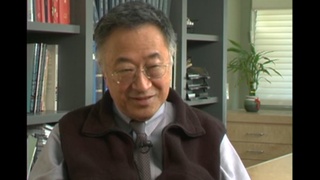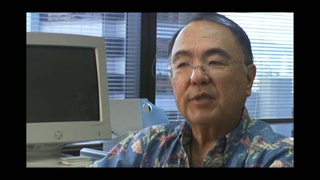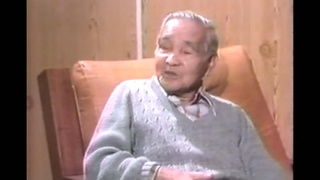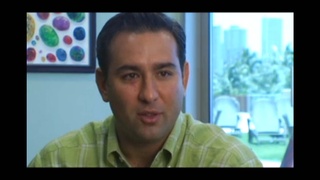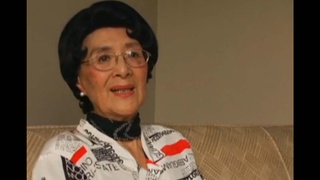Interviews
Liaison between the Americans and the Japanese
I already had a job lined up with a construction company at the time of the, when I graduated from technical college. And I went to their headquarters and reported for duty. And at that same time, they told me, says, "Well, you could go to a dam project in Shikoku." And my brother intervened and said that here I knew English, be able to communicate with the American forces. So the president of that company, he took a liking to me and he says, "Okay, you stay here." And I answered his, I replied -- well, I repaid, well, repaid him or I answered his call for a thing. He was looking for a job. The construction company had overseas offices in China, Korea and Manchuria, and he had the obligation to take 'em all back and see that they look after the welfare. But they couldn't do that without any job, and jobs from the government and local governments were hard to go by, you were strapped for cash.
But one day, I dropped in to the general headquarters in Tokyo, MacArthur's headquarters, and I was talking to, I happened to run into a lieutenant-colonel there. He says, "Sir" -- well, he came to me and he says, "You looking for a job?" They were looking for a good interpreter. I says, "Yes, I'm looking for some work." He says, "Well, we can use you right away." Says, "No," I says, "I don't mean that. I work for a construction company and I'm trying to see if there's any work the army wants done." Well, at that time, this colonel, lieutenant-colonel in GHQ headquarters, he was in charge of construction of a runway, air-, well, runway in a town called Toyooka that's, that's where the Japanese army had their air cadet school. They had a field there but it was a grass runway, and the Americans wanted a concrete runway. And they were looking for someone to build it for them. Since I knew nothing about the company, nothing about experience, I told him, I says, "Well, could you wait until tomorrow?" Says, "I'll have a bunch of engineers with all the answers."
So next day we went -- once I hurried back to the head office and reported back to the president, and he rounded up things. "Well, get him from somewhere," "Get him from somewhere," "Get him from, call him somewhere." They assembled within a day, and we went to, we went to the headquarters together. And it turned out that they wanted to build an airfield in, airfield in this former air cadet school in Toyooka.
Date: October 29, 2005
Location: Toronto, Canada
Interviewer: Norm Ibuki
Contributed by: Sedai, the Japanese Canadian Legacy Project, Japanese Canadian Cultural Center





